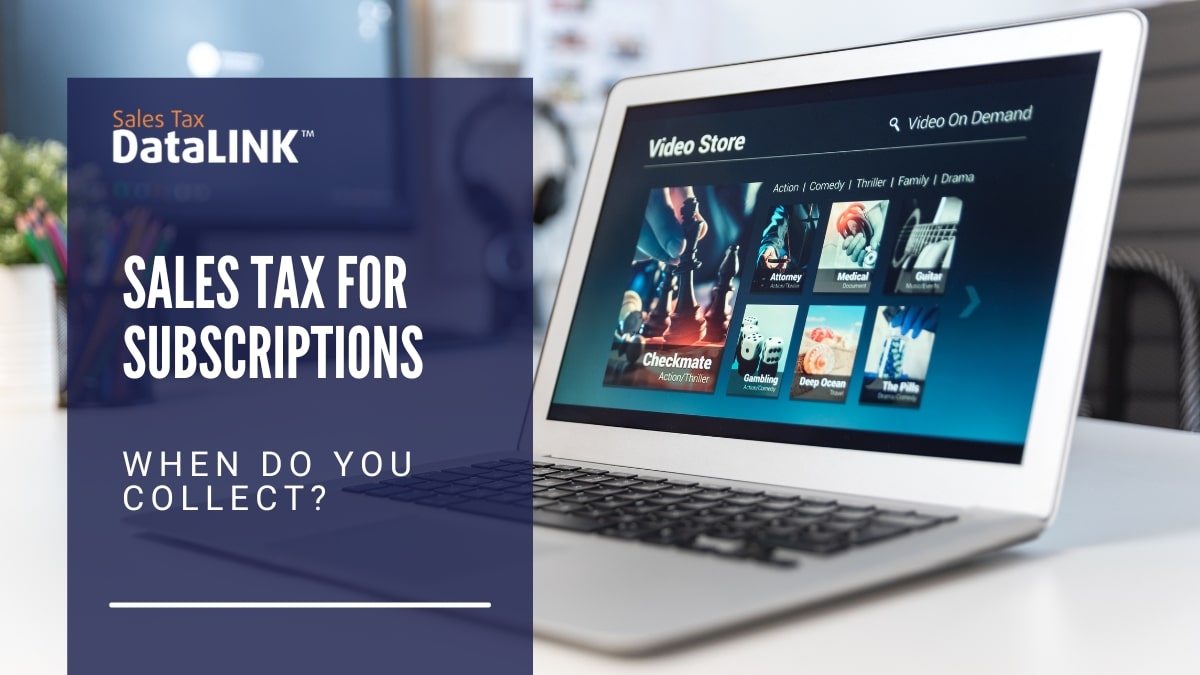When it comes to operating a subscription-based business, the intricacies of sales tax for subscriptions cannot be overlooked. As the subscription model gains widespread popularity across various industries, businesses must navigate the complex landscape of sales tax regulations to ensure compliance. Unlike a uniform national sales tax system, each state has its own set of rules and requirements, making it crucial for subscription businesses to understand the nuances of sales tax collection. From determining taxable destinations to establishing nexus, businesses must stay informed and take proactive measures to appropriately charge and remit sales tax for their subscription offerings. By staying abreast of sales tax regulations and fulfilling their compliance obligations, subscription businesses can effectively manage sales tax for subscriptions and avoid potential penalties or issues down the line.
Subscription business models
Subscription business models are increasingly popular across the country. The simplest example is a magazine. Customers pay an annual price and receive an issue of the magazine every month in return. Sales Tax DataLINK also uses a subscription model, as lots of software solutions do. But there are now subscription services for practically every kind of product and service, from shaving equipment to wine. If your business uses a subscription model, one of the things you need to consider is whether to collect sales tax for subscriptions.
Tangible Goods
Each state has its own rules for sales tax. At this point, the U.S. has no national sales tax and no uniform code for how sales taxes are calculated and collected. Some states have specific rules for subscription services like Netflix or online yoga classes. But if your subscription business supplies tangible goods, it’s likely that you will need to charge sales tax just as if you were selling them off the shelf in a store.
The big questions you need to consider:
- Are your items taxable where you’re shipping them?
Do you have nexus where you are shipping them?
The point about where you’re shipping them is essential. If you ship a box of vegetables to your subscriber each week from Texas, where groceries are exempt from sales tax, that doesn’t mean you don’t have to collect sales tax. If food is taxed in the final destination, you must comply with the sales tax rules for the destination. - Within the group of states that tax vegetables, some will charge the same rate for veggies as their basic rate but some will charge a special rate for groceries. You will need to charge sales tax at the correct rate for each transaction according to its destination.
That is if you have nexus.
NEXUS
If you ship taxable goods, you must collect sales tax if you have nexus in the destination jurisdiction. You may establish a nexus by having a physical presence in a state, or by having an economic nexus.
Here’s where a subscription service can complicate things. Most states have an economic nexus threshold: a company with $200,000 in sales in a year is considered to have nexus, for example. But some states also have a number of transactions, such as 200. If you ship boxes of vegetables each week, and customers pay for each box separately as subscribers, you might have 52 transactions for each customer. You can easily see that five customers, in that case, would establish a nexus for that state, even though your revenue from those customers would probably be below the $200,000 mark.
Each state can define economic nexus as they choose, so it’s essential that you have a nexus audit or conduct one for yourself. You will need to collect and remit sales taxes for every jurisdiction where you have nexus according to their definition.
You may very well have nexus in some states but not in others.
BUNDLING
Let’s imagine that you have sorted all this out and you’re collecting the right amount of sales tax on all your transactions. Now you decide to offer something special: a cookbook and a cutting board in an upcoming box of radishes and rutabagas. If you charge for the cookbook and cutting board, you will be bundling. In some jurisdictions, the vegetables are tax-exempt but the cutting board is taxable. You will probably need to collect sales tax for the taxable items, and possibly for the entire total.
In some of those jurisdictions, the threshold for economic nexus is based on your gross sales, not just your taxable sales. Suddenly, you might have nexus in a state where you formerly did not have to collect sales tax. You will have to register to collect sales tax, collect sales tax on non-food items, and file in that new jurisdiction, even if the total taxable sales are well below the threshold.
IS YOUR HEAD SPINNING?
Sales tax is complicated. Subscription plans have some special quirks that can make them a little more complicated, but sales taxes are just generally complicated. If sorting through all these ins and outs is not the best use of your time, Sales Tax DataLINK has a team of sales tax experts who can take on all your sales tax compliance chores.
Call 479-715-4275 to set up a demo.




